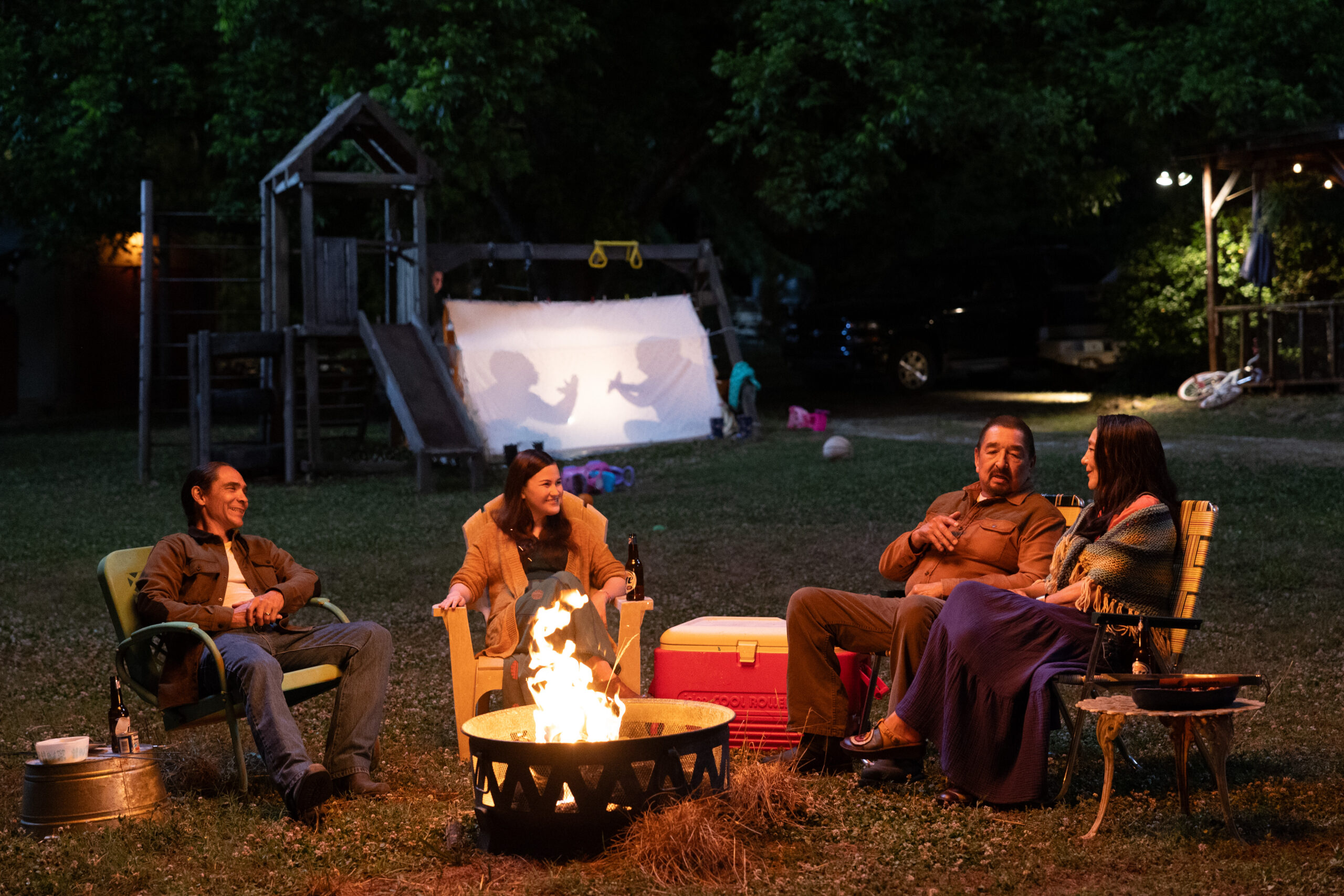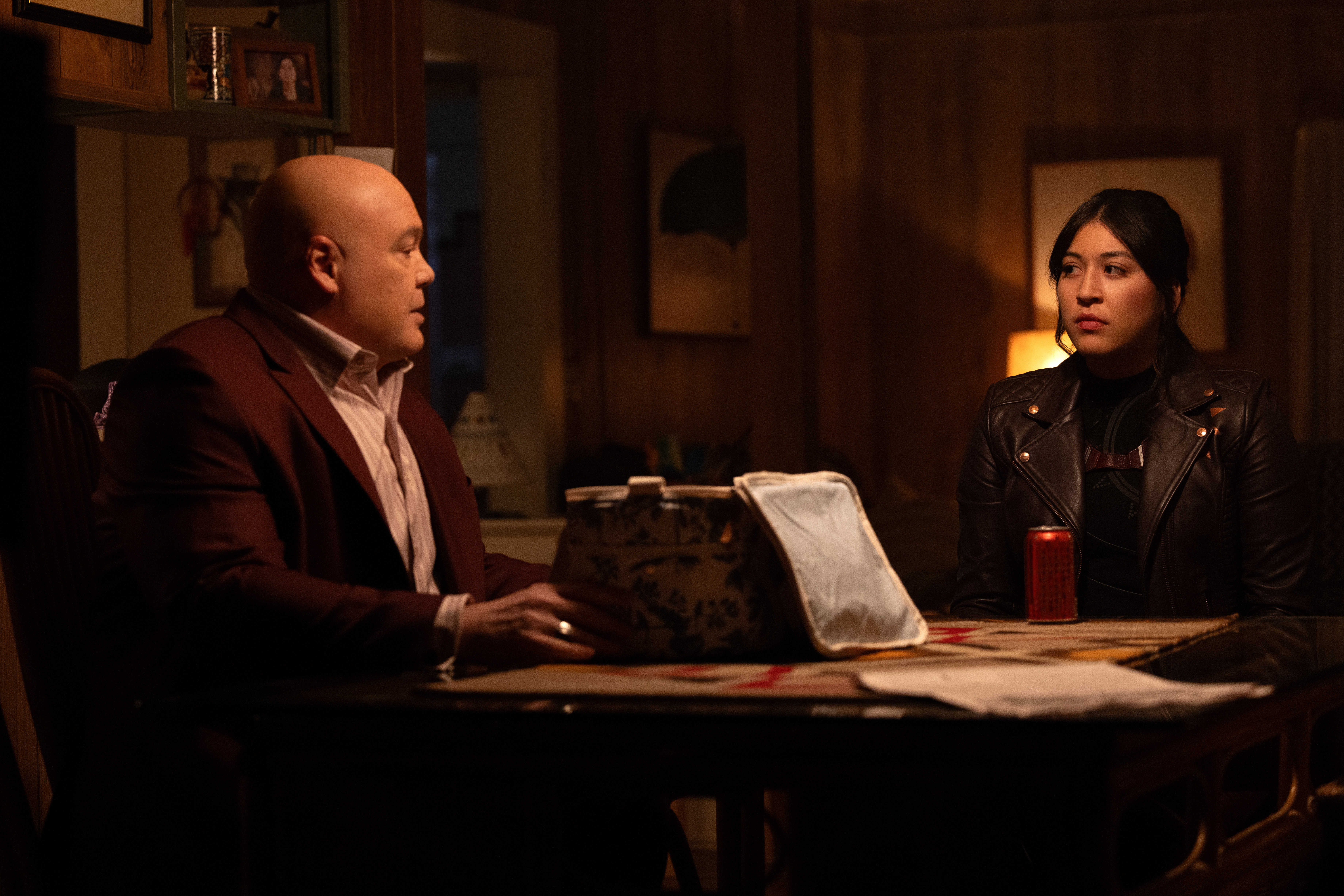Want to hear more from the actors and creators of your favorite shows and films? Subscribe to The Cinema Spot on YouTube for all of our upcoming interviews!
Very moving and entertaining—that is what can be said when describing Marvel Studios’ latest mini-series, Echo, spearheaded by AMC’s Better Call Saul screenwriter, Marion Dayre. For starters, this is yet another series where Marvel Studios prioritized another diverse story and created yet another world where people become educated on the new cultural elements they can visualize but also enjoy other action-packed street fighting sequences filled with miniseries from the Marvel Universe.
Nevertheless, the characterization of Maya Lopez/ Echo (Alaqua Cox) is one that I think will be inspiring and encouraging for all audiences when they view this series. The first live-action series to be mainly centered around Choctaw culture and to have an indigenous character is a very important feat for Marvel to be embracing. While there is some staunch criticism about the series that exists, there is also a bit of understanding and praise for this very touching piece of art from Marvel Studios.

What Works
The absolute most important thing that is key to how the narrative of Echo plays out is the performance of Alaqua Cox. The Native performer embodies what it means to be the titular character of the series, Maya Lopez. Her ability to convey how Maya is as a person often explicitly shows how guarded the character has become after experiencing loss early on in the series. This also comes as Alaqua Cox incorporates strength into her portrayal of Maya. She wants viewers to understand that being deaf and disabled is not a hindrance for Maya but a strength. It is also shown throughout the show how the protagonist is a very fearless hero. There is nothing that she cannot do, and it’s all due to that strength that she draws from. More importantly, there are also moments where Maya becomes very vulnerable, particularly around her family members.
One of the more common themes of this series is familial balance. The key openings and explored worldbuilding around Maya’s ancestral plane are what bring such light and joy to this often-mature series. Knowing about how her life is interwoven because of her ancestral plane is one of the most delightful and telling parts of the story. The silent film during the introduction of the third episode, “Tuklo”, is arguably one of the best sequences in the Marvel Cinematic Universe yet. This series is all about self-reflection and going deeper into healing from the past to grow in your present-day self.
What Does Not Worth
The inclusion of Wilson Fisk/ Kingpin (Vincent D’Onofrio), to say the least, was not necessary at all. Echo could have truly stood on its own as a Marvel property without the constant inclusion that this story is somehow tied to the greater Marvel timeline. Although it was nice and pleasurable to watch D’Onofrio return to this beloved role in the Marvel Cinematic Universe, it is also a bit jarring at times as how his character barely adds anything to the plot. A consistent theme in this series is the familial struggle Maya Lopez faces as a character and even Fisk plays into that. However, as a fan of Marvel, it is better if audiences can connect with the original character more than relying on nostalgia bait. Still, there is a moment during the final episode, “Maya”, between these two characters that makes up for all of the times Fisk’s presence in this story was questionable.
Echo‘s pacing is also a little all over the place. It wants to tell one story but then tries to establish all sorts of worldbuilding and various understandings of how certain powers work, along with the very important ancestral plane. At the same time, it’s as though this show is not sure what it wants to be, and that’s a problem. The finale starts off promising after a pretty decent fourth episode, “Taloa”, but then we’re suddenly brought back to the traditional Marvel formula where everything has to end on a positive note. As many have previously criticized Marvel on this, it would be nice if they were willing to create much more darker and mature realities where everything is not necessarily always happy. This is especially the case with more and more Marvel fans growing older and older.
In music journalism, there’s a saying that artists need to evolve and grow with their audience, understanding that they are no longer children. The same should be true in the entertainment industry, in particular with Marvel. On a show created for mature audiences, it is okay to have a mature ending where things are not necessarily always ending on a positive note.

Final Thoughts on Marion Dayre’s Marvel Studios Limited Series, Echo
Echo has both its hits and its misses, but ultimately, this show is one of the more interesting projects of the MCU’s Phase Five. While there are various issues with the pacing of the show, the performances of the actors and the passion behind wanting to create a show that inspires people to know they can do anything they put their minds to is elite. The common theme of ancestors and the idea of legacy constantly discussed in this show is something that you leave the show thinking about. Knowing about the importance of Choctaw culture, how Maya has to reconnect with her familial origins and ultimately allow herself to become vulnerable again in front of her family after experiencing such tragic loss was moving. This is a story for people who are looking for something to potentially learn more about different cultures and even have a renewed mind about how the past can inform the present and future of your lives.
When viewing this show, you go into it understanding that is a mature show for a mature audience. In the process, you come to find that while there are issues within its screenwriting, you can connect with these characters through the phenomenal acting and passion put behind each line in the script. Regardless, the very importance of Choctaw culture plays a huge part in the narrative. Being able to view how Maya’s ancestors played a huge role in the power she currently has and how her story is essentially formed from lineage is quite brilliant. Overall, Echo is a fine series, despite some portions being confusing and other parts exhilarating.
Final Rating: 7/10
This article was edited by John Tangalin.
